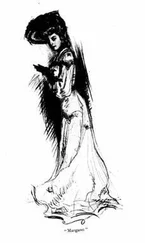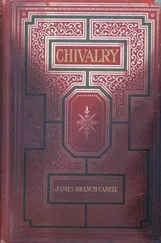James Cabell - The Certain Hour. Dizain des Poëtes
Здесь есть возможность читать онлайн «James Cabell - The Certain Hour. Dizain des Poëtes» весь текст электронной книги совершенно бесплатно (целиком полную версию без сокращений). В некоторых случаях можно слушать аудио, скачать через торрент в формате fb2 и присутствует краткое содержание. Жанр: Современная проза, на английском языке. Описание произведения, (предисловие) а так же отзывы посетителей доступны на портале библиотеки ЛибКат.
- Название:The Certain Hour. Dizain des Poëtes
- Автор:
- Жанр:
- Год:неизвестен
- ISBN:нет данных
- Рейтинг книги:4 / 5. Голосов: 1
-
Избранное:Добавить в избранное
- Отзывы:
-
Ваша оценка:
- 80
- 1
- 2
- 3
- 4
- 5
The Certain Hour. Dizain des Poëtes: краткое содержание, описание и аннотация
Предлагаем к чтению аннотацию, описание, краткое содержание или предисловие (зависит от того, что написал сам автор книги «The Certain Hour. Dizain des Poëtes»). Если вы не нашли необходимую информацию о книге — напишите в комментариях, мы постараемся отыскать её.
The Certain Hour. Dizain des Poëtes — читать онлайн бесплатно полную книгу (весь текст) целиком
Ниже представлен текст книги, разбитый по страницам. Система сохранения места последней прочитанной страницы, позволяет с удобством читать онлайн бесплатно книгу «The Certain Hour. Dizain des Poëtes», без необходимости каждый раз заново искать на чём Вы остановились. Поставьте закладку, и сможете в любой момент перейти на страницу, на которой закончили чтение.
Интервал:
Закладка:
Such, if it be allowed to shift the metaphor, are the treacherous by-paths of that admirably policed highway whereon the well-groomed and well-bitted Pegasi of Vanderhoffen and Charteris (in his later manner) trot stolidly and safely toward oblivion. And the result of wandering afield is of necessity a tragedy, in that the deviator's life, if not as an artist's quite certainly as a human being's, must in the outcome be adjudged a failure.
Hereinafter, then, you have an attempt to depict a special temperament-one in essence "literary"-as very variously molded by diverse eras and as responding in proportion with its ability to the demands of a certain hour.
II
And this much said, it is permissible to hope, at least, that here and there some reader may be found not wholly blind to this book's goal, whatever be his opinion as to this book's success in reaching it. Yet many honest souls there be among us average-novel-readers in whose eyes this volume must rest content to figure as a collection of short stories having naught in common beyond the feature that each deals with the affaires du coeur of a poet.
Such must always be the book's interpretation by mental indolence. The fact is incontestable; and this fact in itself may be taken as sufficient to establish the inexpediency of publishing The Certain Hour . For that "people will not buy a volume of short stories" is notorious to all publishers. To offset the axiom there are no doubt incongruous phenomena-ranging from the continued popularity of the Bible to the present general esteem of Mr. Kipling, and embracing the rather unaccountable vogue of "O. Henry";-but, none the less, the superstition has its force.
Here intervenes the multifariousness of man, pointed out somewhere by Mr. Gilbert Chesterton, which enables the individual to be at once a vegetarian, a golfer, a vestryman, a blond, a mammal, a Democrat, and an immortal spirit. As a rational person, one may debonairly consider The Certain Hour possesses as large license to look like a volume of short stories as, say, a backgammon-board has to its customary guise of a two-volume history; but as an average-novel-reader, one must vote otherwise. As an average-novel-reader, one must condemn the very book which, as a seasoned scribbler, one was moved to write through long consideration of the drama already suggested-that immemorial drama of the desire to write perfectly of beautiful happenings, and the obscure martyrdom to which this desire solicits its possessor.
Now, clearly, the struggle of a special temperament with a fixed force does not forthwith begin another story when the locale of combat shifts. The case is, rather, as when-with certainly an intervening change of apparel-Pompey fights Caesar at both Dyrrachium and Pharsalus, or as when General Grant successively encounters General Lee at the Wilderness, Spottsylvania, Cold Harbor and Appomattox. The combatants remain unchanged, the question at issue is the same, the tragedy has continuity. And even so, from the time of Sire Raimbaut to that of John Charteris has a special temperament heart-hungrily confronted an ageless problem: at what cost now, in this fleet hour of my vigor, may one write perfectly of beautiful happenings?
Thus logic urges, with pathetic futility, inasmuch as we average-novel-readers are profoundly indifferent to both logic and good writing. And always the fact remains that to the mentally indolent this book may well seem a volume of disconnected short stories. All of us being more or less mentally indolent, this possibility constitutes a dire fault.
Three other damning objections will readily obtrude themselves: The Certain Hour deals with past epochs-beginning before the introduction of dinner-forks, and ending at that remote quaint period when people used to waltz and two-step-dead eras in which we average-novel-readers are not interested; The Certain Hour assumes an appreciable amount of culture and information on its purchaser's part, which we average-novel-readers either lack or, else, are unaccustomed to employ in connection with reading for pastime; and-in our eyes the crowning misdemeanor- The Certain Hour is not "vital."
Having thus candidly confessed these faults committed as the writer of this book, it is still possible in human multifariousness to consider their enormity, not merely in this book, but in fictional reading-matter at large, as viewed by an average-novel-reader-by a representative of that potent class whose preferences dictate the nature and main trend of modern American literature. And to do this, it may be, throws no unsalutary sidelight upon the still-existent problem: at what cost, now, may one attempt to write perfectly of beautiful happenings?
III
Indisputably the most striking defect of this modern American literature is the fact that the production of anything at all resembling literature is scarcely anywhere apparent. Innumerable printing-presses, instead, are turning out a vast quantity of reading-matter, the candidly recognized purpose of which is to kill time, and which-it has been asserted, though perhaps too sweepingly-ought not to be vended over book-counters, but rather in drugstores along with the other narcotics.
It is begging the question to protest that the class of people who a generation ago read nothing now at least read novels, and to regard this as a change for the better. By similar logic it would be more wholesome to breakfast off laudanum than to omit the meal entirely. The nineteenth century, in fact, by making education popular, has produced in America the curious spectacle of a reading-public with essentially nonliterary tastes. Formerly, better books were published, because they were intended for persons who turned to reading through a natural bent of mind; whereas the modern American novel of commerce is addressed to us average people who read, when we read at all, in violation of every innate instinct.
Such grounds as yet exist for hopefulness on the part of those who cordially care for belles lettres are to be found elsewhere than in the crowded market-places of fiction, where genuine intelligence panders on all sides to ignorance and indolence. The phrase may seem to have no very civil ring; but reflection will assure the fair-minded that two indispensable requisites nowadays of a pecuniarily successful novel are, really, that it make no demand upon the reader's imagination, and that it rigorously refrain from assuming its reader to possess any particular information on any subject whatever. The author who writes over the head of the public is the most dangerous enemy of his publisher-and the most insidious as well, because so many publishers are in private life interested in literary matters, and would readily permit this personal foible to influence the exercise of their vocation were it possible to do so upon the preferable side of bankruptcy.
But publishers, among innumerable other conditions, must weigh the fact that no novel which does not deal with modern times is ever really popular among the serious-minded. It is difficult to imagine a tale whose action developed under the rule of the Caesars or the Merovingians being treated as more than a literary hors d'oeuvre . We purchasers of "vital" novels know nothing about the period, beyond a hazy association of it with the restrictions of the schoolroom; our sluggish imaginations instinctively rebel against the exertion of forming any notion of such a period; and all the human nature that exists even in serious-minded persons is stirred up to resentment against the book's author for presuming to know more than a potential patron. The book, in fine, simply irritates the serious-minded person; and she-for it is only women who willingly brave the terrors of department-stores, where most of our new books are bought nowadays-quite naturally puts it aside in favor of some keen and daring study of American life that is warranted to grip the reader. So, modernity of scene is everywhere necessitated as an essential qualification for a book's discussion at the literary evenings of the local woman's club; and modernity of scene, of course, is almost always fatal to the permanent worth of fictitious narrative.
Читать дальшеИнтервал:
Закладка:
Похожие книги на «The Certain Hour. Dizain des Poëtes»
Представляем Вашему вниманию похожие книги на «The Certain Hour. Dizain des Poëtes» списком для выбора. Мы отобрали схожую по названию и смыслу литературу в надежде предоставить читателям больше вариантов отыскать новые, интересные, ещё непрочитанные произведения.
Обсуждение, отзывы о книге «The Certain Hour. Dizain des Poëtes» и просто собственные мнения читателей. Оставьте ваши комментарии, напишите, что Вы думаете о произведении, его смысле или главных героях. Укажите что конкретно понравилось, а что нет, и почему Вы так считаете.



